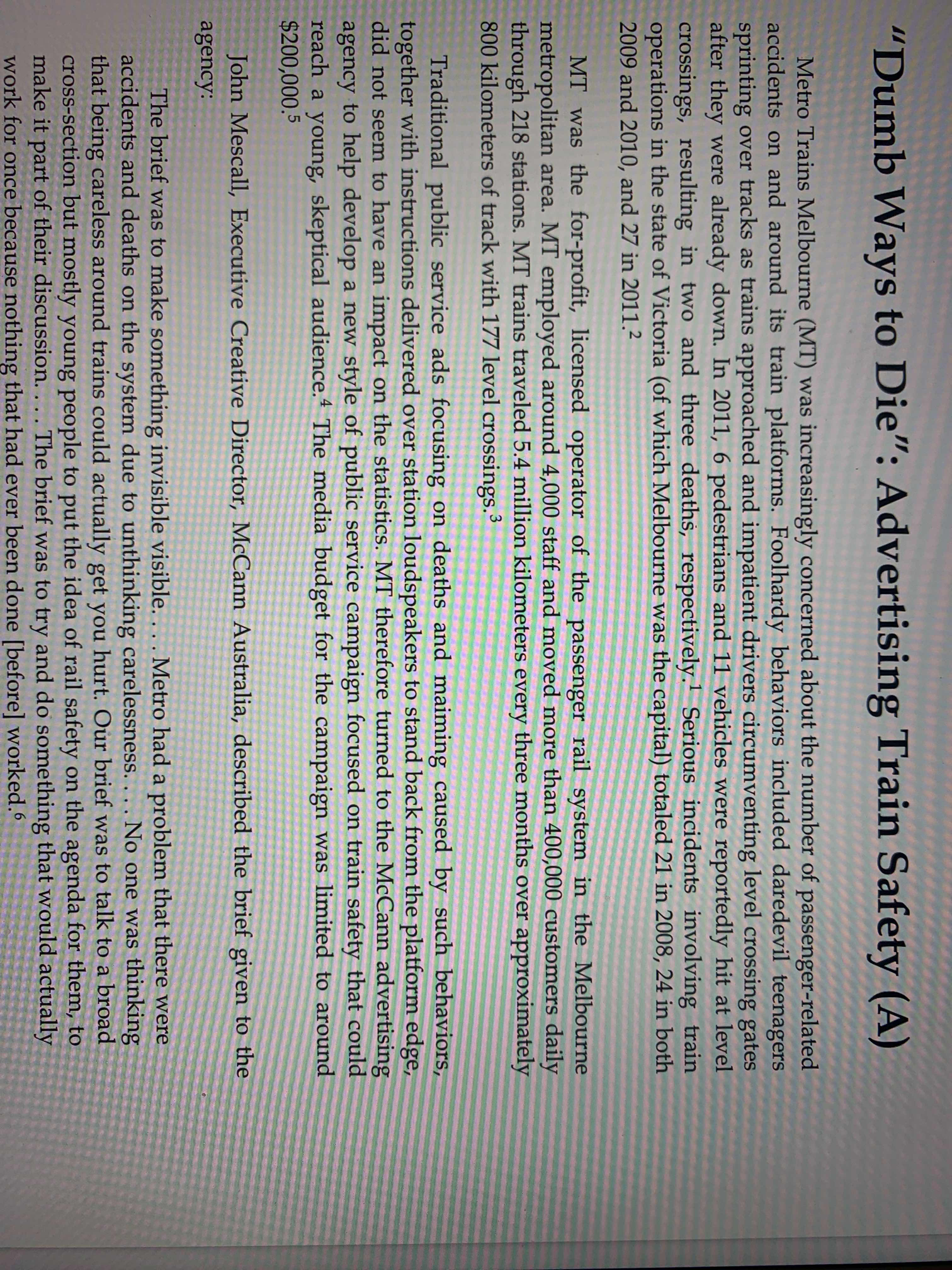"Dumb Ways to Die": Advertising Train Safety (A) Metro Trains Melbourne (MT) was increasingly concerned about the number of passenger-related accidents on and around its train platforms. Foolhardy behaviors included daredevil teenagers sprinting over tracks as trains approached and impatient drivers circumventing level crossing gates after they were already down. In 2011, 6 pedestrians and 11 vehicles were reportedly hit at level crossings, resulting in two and three deaths, respectively. Serious incidents involving train operations in the state of Victoria (of which Melbourne was the capital) totaled 21 in 2008, 24 in both 2009 and 2010, and 27 in 2011.2 MT was the for-profit, licensed operator of the passenger rail system in the Melbourne metropolitan area. MT employed around 4,000 staff and moved more than 400,000 customers daily through 218 stations. MT trains traveled 5.4 million kilometers every three months over approximately 800 kilometers of track with 177 level crossings.3 Traditional public service ads focusing on deaths and maiming caused by such behaviors, together with instructions delivered over station loudspeakers to stand back from the platform edge, did not seem to have an impact on the statistics. MT therefore turned to the Mccann advertising agency to help develop a new style of public service campaign focused on train safety that could reach a young, skeptical audience. The media budget for the campaign was limited to around $200,000.5 John Mescall, Executive Creative Director, Mccann Australia, described the brief given to the agency: The brief was to make something invisible visible. .. . Metro had a problem that there were accidents and deaths on the system due to unthinking carelessness. . . . No one was thinking that being careless around trains could actually get you hurt. Our brief was to talk to a broad cross-section but mostly young people to put the idea of rail safety on the agenda for them, to make it part of their discussion. . .. The brief was to try and do something that would actually work for once because nothing that had ever been done [before] worked.6







